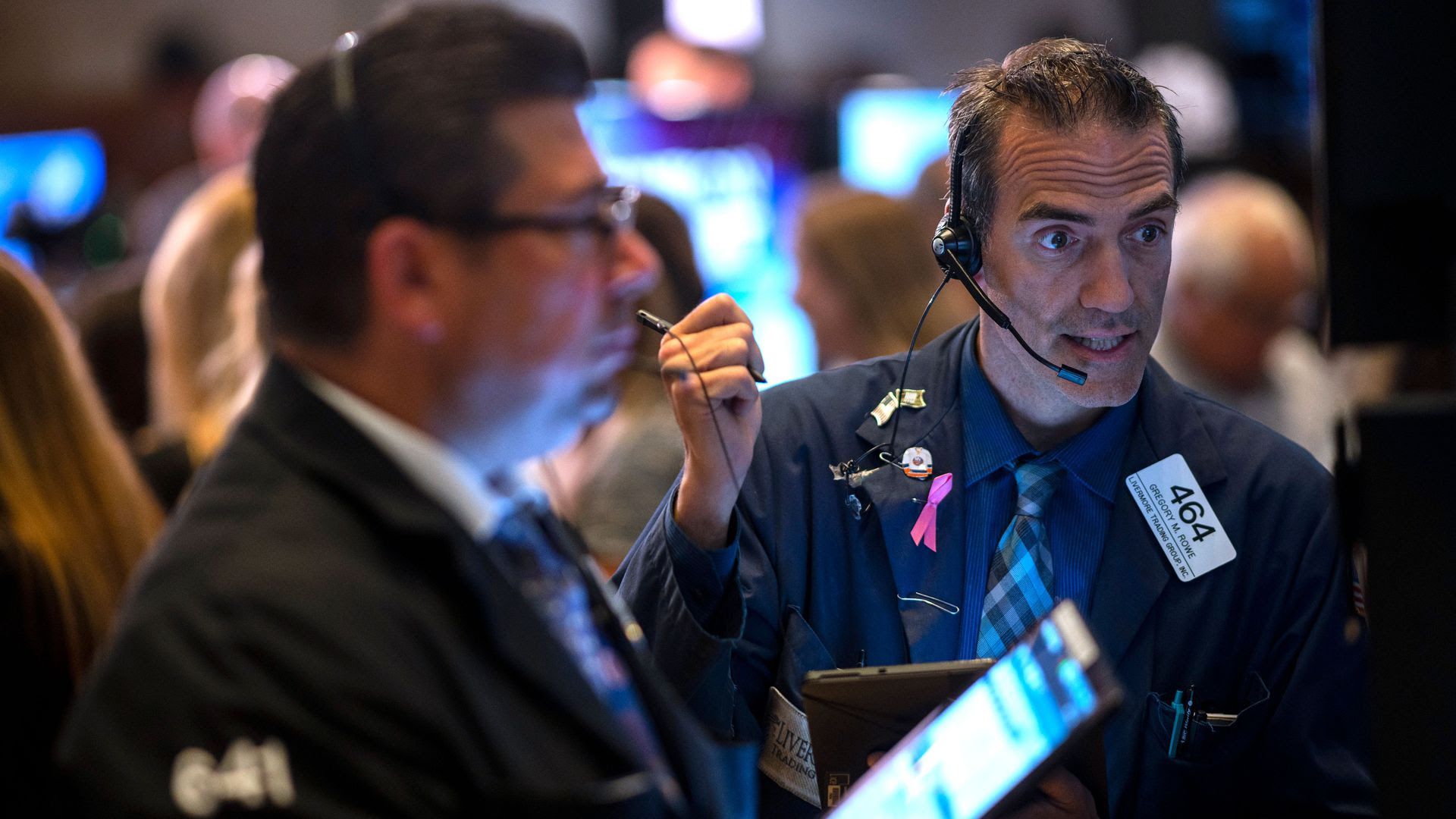The market's unusual calm
Add Axios as your preferred source to
see more of our stories on Google.

Traders work after the opening bell at the New York Stock Exchange on July 16. Photo: Johannes Eiselle /AFP/Getty Images
The stock market has been unusually calm this year, prompting traders to place increasingly large bets on low market volatility — but they could be setting themselves and the broader market up for big losses.
What's happening: The S&P 500 hasn't moved more than 1% in either direction in more than 5 weeks, according to Datatrek co-founder Nicholas Colas. That defies historical trends and is leading more investors to take short-sell bets that the Cboe Volatility Index (VIX), which tracks big, unexpected moves in the market, will decline.
- The latest CFTC data shows speculators' short bets against the VIX outnumber longs nearly 2.5 to 1.
Why it matters: The big losses triggered in short-volatility trading instruments helped lead to the stock market selloff in December that pushed the Dow and S&P 500 to their worst December since 1931.
- In February 2018 stock market volatility triggered losses so steep that both Credit Suisse and Nomura were forced to shutter their short-VIX products.
Threat level: With the Fed expected to cut interest rates this month and at least once more in 2019, central banks around the globe have initiated a cycle of easy monetary policy, increasing liquidity in capital markets.
- That's underpinning expectations of a low volatility that could easily unwind given the uncertainty of the U.S.-China trade war, weak earnings expectations, declining global growth and rising geopolitical tensions in the Middle East and Asia.
The big picture: Investors raised short volatility bets to the highest level in 6 years in April, according to analysts from Nordea Bank, who spoke to Refinitiv's IFR.
- June and July's unprecedented market calm have again whet investor appetite for the products in what has so far been a summer of very low volume trading.
- However, low trading volume can mean big trades move a market significantly, spiking volatility and triggering potentially massive losses.
What to watch: "It's a worrying sign," Andreas Steno Larsen, senior global strategist at Nordea told IFR.
- "The interest is definitely there broadly speaking across asset classes. I consider that a natural result of the U-turn we've gotten from central banks."
Yes, but: Larsen made the comments in April and the market has continued to rise — and VIX has continued to fall — since then.
Go deeper: Millions of Americans make 5x leveraged bets on their homes
